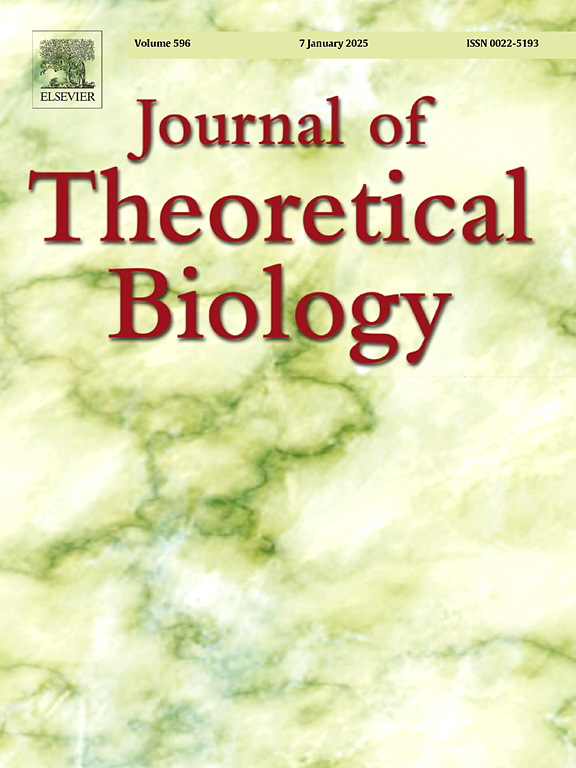基于事件的生物害虫控制:LMI 方法
IF 1.9
4区 数学
Q2 BIOLOGY
引用次数: 0
摘要
本研究的重点是对描述甘蔗螟(Diatraea saccharalis)与其卵寄生虫Trichogramma galloi以及Trichogramma galloi和Cotesia flavipes之间相互作用的数学模型进行事件触发控制。通过采用数字控制设计,可以设计出有效的策略,最大限度地减少天敌数量。因此,提出一种针对甘蔗螟的事件触发控制机制至关重要。本研究的主要目标是开发一种事件触发的可靠状态反馈控制器,确保甘蔗螟系统的状态收敛到所需的稳态平衡点。此外,这种控制设计还能大大减少控制更新,并保持将天敌引入环境。最后,我们利用甘蔗螟虫系统进行了模拟,以证明所提出的事件触发设计技术的好处和有效性。本文章由计算机程序翻译,如有差异,请以英文原文为准。
Event-based biological pest control: An LMI approach
This study focuses on the event-triggered control approach for the mathematical model describing the interaction between the sugarcane borer (Diatraea saccharalis) and its egg parasitoid Trichogramma galloi, as well as the combined interaction of Trichogramma galloi and Cotesia flavipes. By employing digital control design, an effective strategy can be devised to minimize the population of natural enemies. Therefore, proposing an event-triggered control mechanism for the sugarcane borer is essential. The primary objective of this study is to develop an event-triggered reliable state feedback controller, ensuring that the states of the sugarcane borer system converge to the desired steady-state equilibrium points. Additionally, this control design significantly reduces control updates and maintains the introduction of natural enemies into the environment. Ultimately, simulations are carried out using sugarcane borer systems to demonstrate the benefits and effectiveness of the proposed event-triggered design technique.
求助全文
通过发布文献求助,成功后即可免费获取论文全文。
去求助
来源期刊
CiteScore
4.20
自引率
5.00%
发文量
218
审稿时长
51 days
期刊介绍:
The Journal of Theoretical Biology is the leading forum for theoretical perspectives that give insight into biological processes. It covers a very wide range of topics and is of interest to biologists in many areas of research, including:
• Brain and Neuroscience
• Cancer Growth and Treatment
• Cell Biology
• Developmental Biology
• Ecology
• Evolution
• Immunology,
• Infectious and non-infectious Diseases,
• Mathematical, Computational, Biophysical and Statistical Modeling
• Microbiology, Molecular Biology, and Biochemistry
• Networks and Complex Systems
• Physiology
• Pharmacodynamics
• Animal Behavior and Game Theory
Acceptable papers are those that bear significant importance on the biology per se being presented, and not on the mathematical analysis. Papers that include some data or experimental material bearing on theory will be considered, including those that contain comparative study, statistical data analysis, mathematical proof, computer simulations, experiments, field observations, or even philosophical arguments, which are all methods to support or reject theoretical ideas. However, there should be a concerted effort to make papers intelligible to biologists in the chosen field.

 求助内容:
求助内容: 应助结果提醒方式:
应助结果提醒方式:


